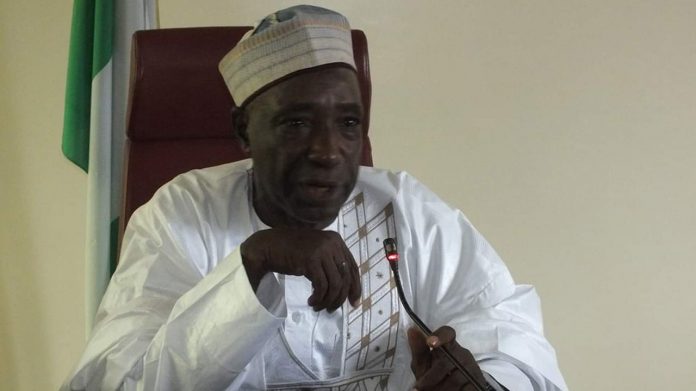By Joseph Chibueze, Abuja
The Federal Ministry of Agriculture and Rural Development and stakeholders in the agricultural sector have began work to streamline the implementation of the 11 objectives of the National Gender Policy on Agriculture to reduce the vulnerabilities of women.
The Policy when fully implemented would enhance food security, chatting a road map on roles, responsibilities of the stakeholders.
The Permanent Secretary, Ministry of Agriculture and Rural Development, Dr. Ernest A. Umakhihe while declaring open the strategy workshop for the implementation of the policy, in Abuja, noted that the policy legal frame work was based on the recommendations of the National Gender Policy under the supervision of Ministry of Women Affairs, Protocols and Treaties signed by the Federal Government on Gender mainstreaming and the 1999 Nigeria Constitution as amended.
The Permanent Secretary said, “The policy is consistent with the global 2030 Agenda for Sustainable Development adopted by World Leaders at the United Nations Summit in New York, in September, 2015, which underscores the vital role agriculture plays in sustainable development and its importance in achieving the Sustainable Development Goals (SDGs).
“Gender mainstreaming is “Smart Economics” and a prerequisite for eradicating poverty and promoting sustainable human development. He therefore assured that the Ministry and its agencies are committed to the socio- economic empowerment of women and girls in the sector.”
Umakhihe acknowledged that, 75 percent of the world’s poor (women) live in the rural areas and are involved in farming, and mostly depend directly on Agriculture for livelihoods , adding that in many parts of the world including Nigeria, women are the main producers of food but have limited access to farm inputs as there are huge gender disparities in the agriculture sector. He noted that failure to address these gender gaps in roles, differences and inequalities between men and women pose a serious threat to the effectiveness of the agriculture development agenda.
He said that the present administration under the leadership of President Muhammadu Buhari has repositioned agriculture as a business with return on investment as a Mantra-agriculture as an alternative to oil hence, gender mainstreaming in agriculture remains fundamental to economic growth and poverty reduction.
In his Goodwill message, Chairman, House Committee on Agriculture Production and Services, Hon. Dandutse Muntari, stated that the main targets of the policy are to ensure that women and men have equal access and control resources and assured that the legislature will increase gender budgetary allocation in this year budget to ensure gender mainstreaming in the implementation of the policy.
He also said that in Africa, women are always at the receiving end and that if women are properly engaged in Agriculture, Nigerians will be more productive.
In her welcome address, Director, Special Duties in the Ministry, Mrs Fausat Lawal, stated that the workshop should be seen as a demonstration of the Ministry’s readiness to mainstream gender in agriculture through the instrumentality of policy document with the roles and responsibilities assigned to stakeholders. She added that the ministry will be grateful if the assigned roles and responsibilities will be translated to positive outcomes for the empowerment of the vulnerable group in the society-woman and children.
In her presentation, Assistant Director and Head, Gender in the Ministry, Mrs Ifeoma Anyanwu highlighted the 11 objectives of the National Gender Policy framework and targets which includes; Mainstreaming Gender into Climate, Improve cultural practices that hinders women from access to inputs among others.
Stakeholders at the event include: the UN Women in Nigeria, Action Aid, the Albino Foundation, and Small Scale Women Farmers.


